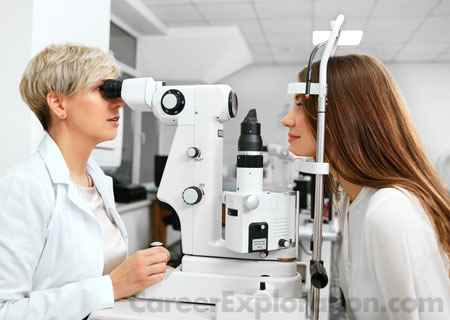
Vision Science/Physiological Optics Major
Vision Science/Physiological Optics Studies is a major program that focuses on the scientific study of vision, visual processes, and related phenomena and clinical research and treatment modalities.
A major program in Vision Science/Physiological Optics will likely include courses in ocular anatomy and physiology, microbiology of the eye, electrophysiology, neurophysiology, corneal physiology, photochemistry, psychophysics, visual biophysics and motor systems, sensory mechanisms and photoreception, eye circulation and metabolism, geometric and physical optics, ocular development across the life span, visual stimuli and perception, color vision, eye motility, biometrics and measurement techniques, visual pathology, and environmental issues.
What can you do with a major/degree in Vision Science/Physiological Optics Studies?
Career options are vast with a degree in Vision Science/Physiological Optics Studies. Many could require higher level of education/degree such as an optometrist or vision scientist. A few of the potential career opportunities may include (but not exclusive to) teaching, research, consultant,
Trade Associations and Professional Organizations in Vision Science/Physiological Optics Studies:
Professional associations are groups of specialists dedicated to topics in particular fields. Professional associations provide a wealth of online resources, some of which are geared specifically towards students. These organizations typically also host conferences and events, providing great opportunities for learning and networking across your field of interest.
- Vision Sciences Society
- Association of Vision Science Librarians
- American Academy of Optometry (.org)
Publications/Magazines in Vision Science/Physiological Optics Studies?
